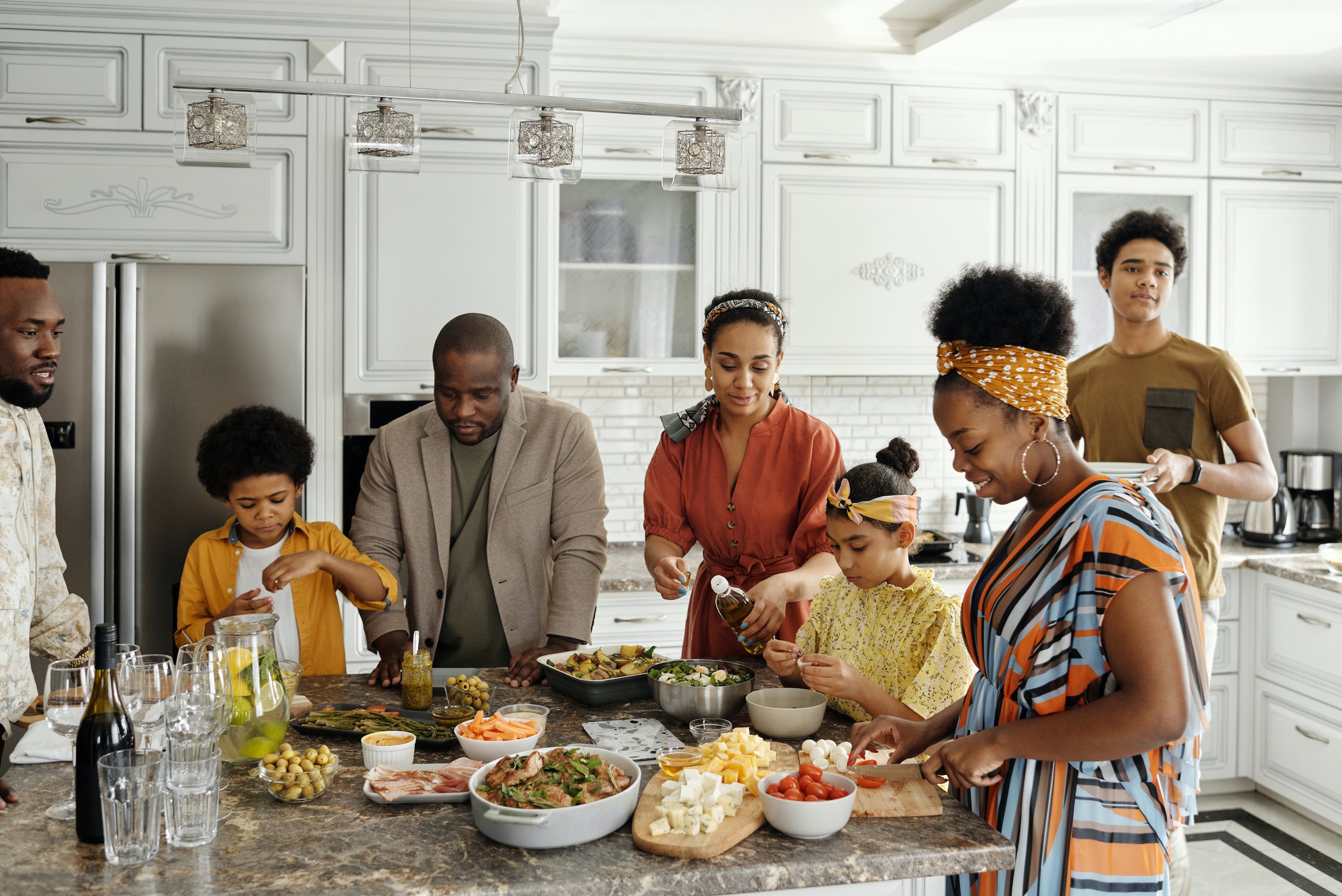Living Up Close: Why Your Proximity To Others Matters
Photo by August de Richelieu on Unsplash.
You know that moment, usually in the kitchen, when every member of your home suddenly needs to use the exact same square foot of space?
This happens multiple times a week to my family. Just yesterday, my husband and I were squeezing past each other as we both tried to use the same counter space. While this was happening, our baby played at our feet, our preschooler stood directly behind us, and our kindergartener tried to open a cupboard at our shins.
In a tangle of reaching and bumping, we could feel the tension rise. We managed to laugh, but also spread out again — quickly!
Over the past few years, we’ve all grown more acutely aware of the square footage of our living spaces, and the meaning of the term close proximity. If given the choice, something within us usually angles for more space, not less. A bigger car, house, yard, even shopping cart or airplane seat. We want space. We want to breathe. We want to abandon feelings of confinement, finiteness, and constraint.
In C. S. Lewis's The Great Divorce, a novel about a fictional bus ride from Hell to Heaven, I found it fascinating that the members of Hell are all particularly concerned with their proximity to others. Far from tortured and anguished, the members of Hell are instead unaware of their location and rather relish it for many reasons, one of which is the delightful ability to move farther and farther away from one another with ease.
Lewis writes of those in Hell, “They’ve been moving on and on. Getting further apart. They’re so far off by now that they could never think of coming to the bus stop at all. Astronomical distances… The trouble here is they have no Needs. You get everything you want here just by imagining it. That’s why it never costs any trouble to move to another street or build another house.”
Our proximity to others matters deeply according to Lewis. It matters because it’s an indicator of the state of our innermost being, a being who is either finding it easier and easier to love and serve others or who is finding it easier and easier to choose “what’s best for me”. To put it another way, living closely with others is a habit of heaven, while isolating ourselves over and over is a habit of hell.
Alarmingly, much like Lewis’ hell, the modern world is increasingly minimizing the consequences of isolation. Every day we’re offered another opportunity to become a little more autonomous.
While I love the many conveniences of the 21st century (you must hear my ode to the grocery pick-up), I’m keenly aware that while being close to people used to be a necessity, it’s now only an option.
Thanks to a worldwide effort, it no longer costs much to isolate. Even within our own homes, we can just as easily text someone as we can walk into the room and speak with them. In this strange new, post-COVID-19 world, we must consciously choose to exercise our “relational muscles”, the muscles we only get when we live up close and personal with others.
When we live in close proximity to others, it’s both wonderful and uncomfortable. Being close means you’re going to get “bumped”, both physically and relationally. It means life will be messier, more complicated, and you’ll definitely be inconvenienced. Do it anyway. Choose to turn towards people rather than away from them.
In short…
We may crave autonomy, but growth and nourishment come from intimacy, and intimacy can only grow from willingness to live alongside other people, even when it gets up close and personal.


